
5 Tips for Raising Happy, Creative Kids...Plus One Important Thing to Avoid
Want to give your child an advantage in today's world? Help them develop their creativity by following these five tips for raising happy, creative kids…plus one important thing to avoid.
It's so exciting to raise a creative child! They're the world's future artists and innovators, and we need them! But how can you raise a creative, happy child? How can you support your child's artistic development without ending up with a house full of paint messes or a child in tears when their project doesn't turn out the way they wanted?
1. Say yes to creative ideas when you can.
If cost is an obstacle, help your child find materials around the house or the recycling bin. If the timing is a problem, you can say, “I want to do that project with you. Right now is not a great time because…(I'm cooking dinner, we have to go to school, etc.). What if we do that project …(in an hour, tomorrow, Saturday morning, etc.)?” Then make sure you put it on the calendar and make it happen. If you're afraid of the mess they will make, teach your child to clean up afterwards. This teaches responsibility as a creative individual, and they will get twice the fulfillment: both from creating and from being responsible.
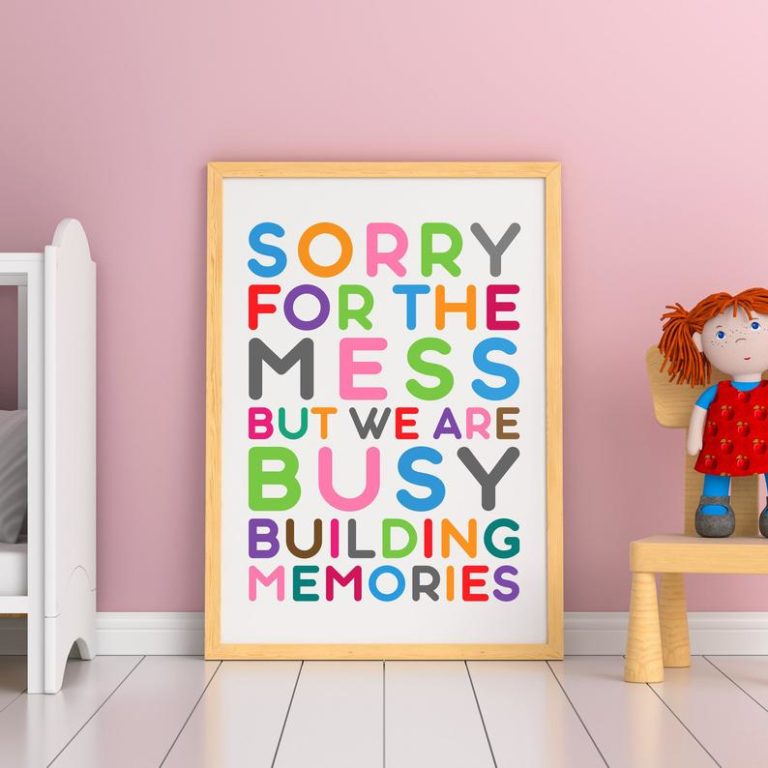
2. Keep a supply of creative materials on hand.
Most creative materials can be found at little to no cost. Check your mail–the inside of envelopes often have interesting patterns that would make for a great collage. Crayons that are broken can be melted down into new shapes. Markers, crayons, colored pencils and paints can often be found on sale in the fall before school starts. If you notice a sale, stock up! Want more detailed guidance on what art supplies are best for kids? This article is a great reference! https://artfulparent.com/our-25-favorite-kids-art-materials/
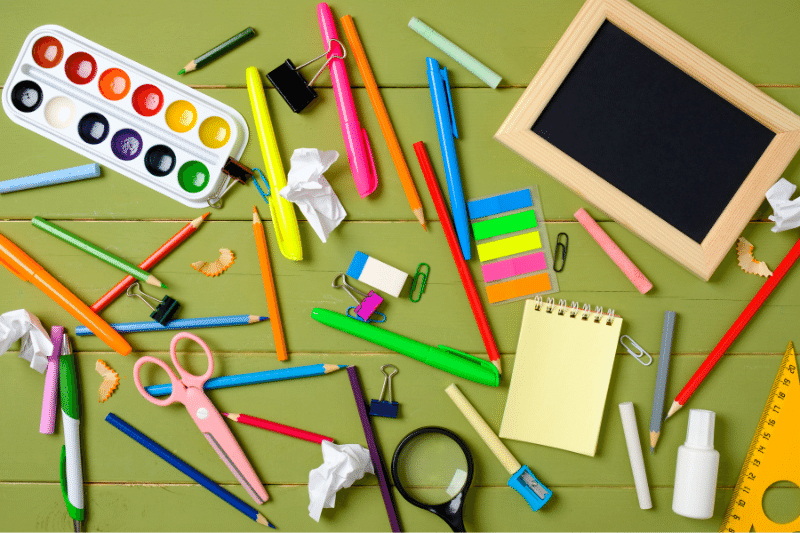
3. Designate a space for creating.
Allow your child to feel ownership and responsibility over that space. It doesn't have to be large—it could be an extra cupboard in the kitchen, an unused closet, or a corner of the child's room. Help your child keep their space designated for creativity but let them make messes there. Often, mess-making is the engine for invention. If the mess bothers you or interferes with the running of the household, set a timer for clean up after creativity time is finished. Want more great ideas? Check out this article by Ooly!
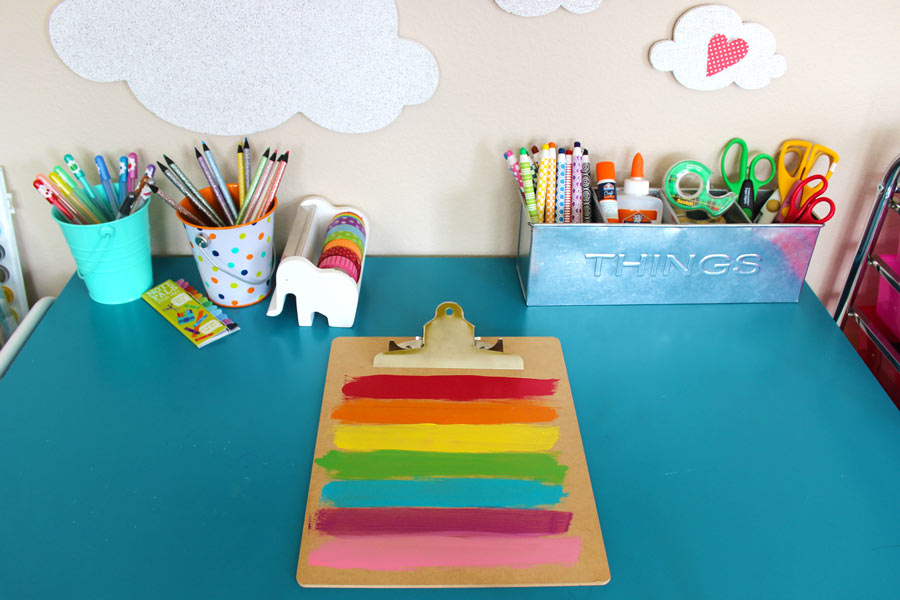
4. Display your child's art in a place where other people can see it.
It sounds so simple, but this has a huge psychological impact on your artistic child. When you display her art, you're telling her that her work is worthy of attention, which will fuel her desire to create more. It can be as easy as magnets on a refrigerator, or as elaborate as some of these DIY art displays for the home. Or you can take it one step further and take pictures of your child's art. Let your child send the pictures to loved ones or friends.
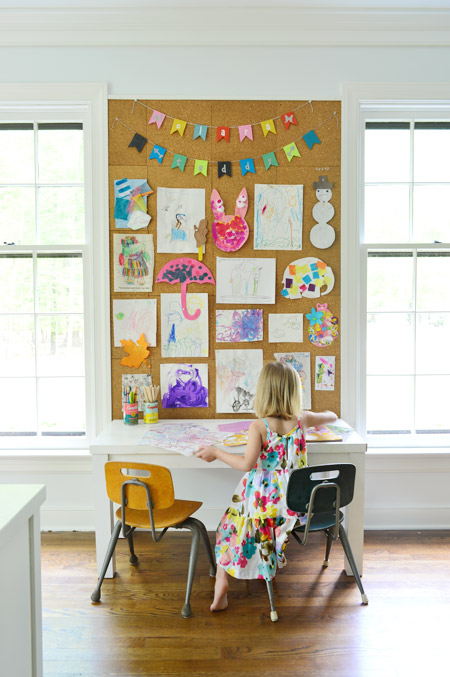
5. Talk to your child about their creative projects.
Avoid being overly extravagant or giving generic praise like “gorgeous” or “perfect”! This can stop a child's progress. Instead, try pointing out what you see in terms of colors, shapes, lines, textures. “Look how you put those tiny lines in that shape,” or, “You’ve made a pattern like the ones on your shirt.” Ask your child to explain their art to you or ask them if they enjoyed themselves while making their project. Want a reminder of helpful ways to talk to your child about their art? Print out our helpful guideline for free here.
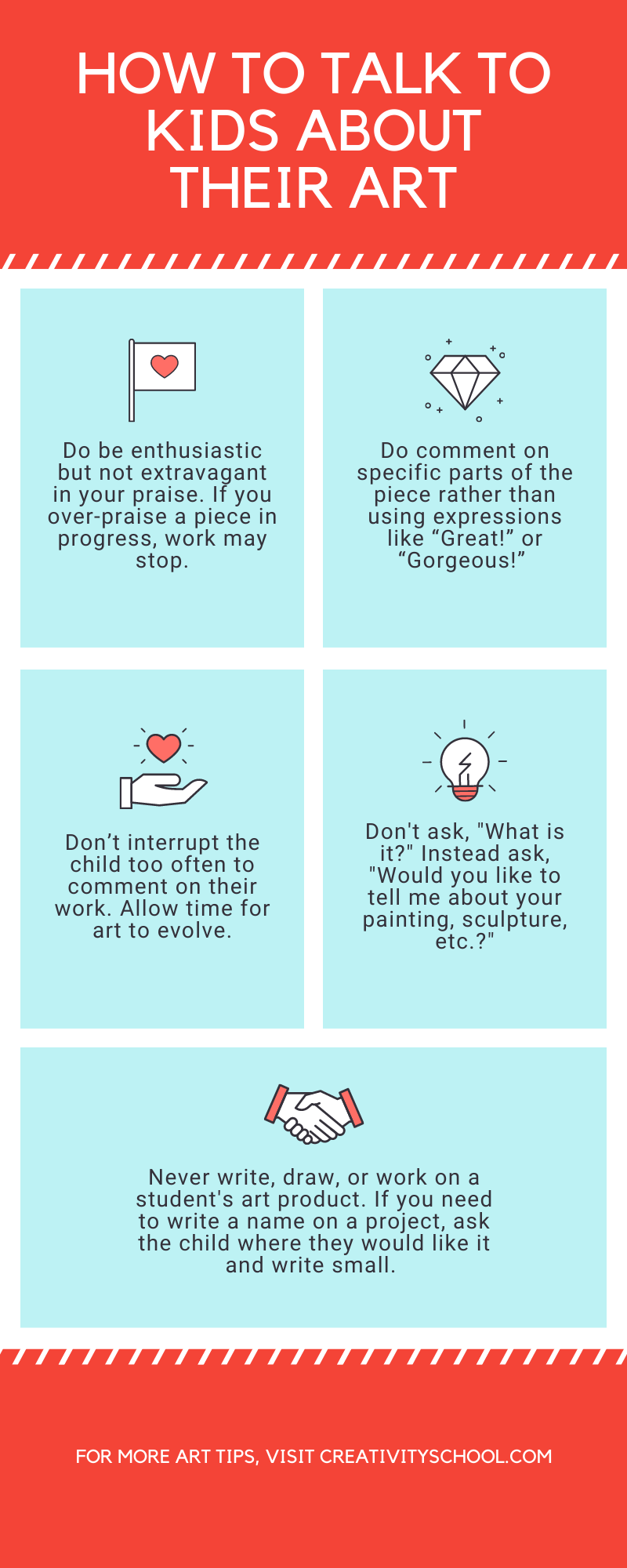
BONUS: One important thing to avoid…
There will be a day when your child has a hard time drawing a complicated shape, cutting paper at a particular angle, or mixing their paint colors right and they will get frustrated.
So what should you do? First of all, don't jump in and take over their project for them.
If your child asks for your help with a specific step, by all means help them! But the best thing you can do for your child when they’re struggling with an art project is to help them find their own solutions. Why?
1. Moments of doubt and struggle help develop creativity.
What happens when you take over your child’s art projects? For starters, your child begins to reinforce the idea that they should turn to their parents and other authority figures to do things for them when they struggle. Resilient kids know that they can overcome obstacles and they will get a sense of accomplishment from pushing through their struggle. A child who does not get the opportunity to push through their struggles will find it easier to give up.
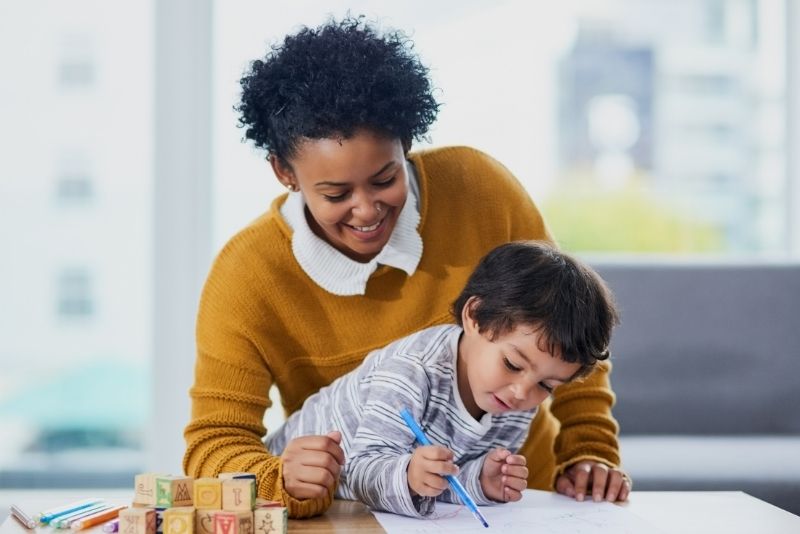
2. A mistake is only a mistake if you decide it is.
Unlike math, in art there are no mistakes—just learning opportunities. If you see your child struggling, try to ask them questions to help them think through what they’re struggling with. But if your child has made a “mistake” and you can see that they’ve deviated from the directions, don’t rush in to fix it for them…especially if they’re not bothered by it!
3. Your child is more resourceful than you know.
Young children have something of a superpower when it comes to creative and divergent thinking. Simply put, your child almost certainly has more brain power than you do when it comes to thinking outside of the box. Let them come up with their own solution and chances are, they'll surprise you!

4. Art is about process, not result.
When your child gets to create at their own speed, they’ll learn things about how they like to work and what processes do and don’t work for them. The more comfortable your child becomes with their creative process, the more likely they are to enjoy creating and to enjoy their end results.
5. Sometimes the most effective long-term parenting involves standing back in the short-term.
It's natural to want to feel like a good parent by helping, fixing, or rescuing your children from their problems. But what often results is that the sense of satisfaction you feel as a parent when you help your child is the very sense of satisfaction that kids DON'T feel when they're helped. If satisfaction in a project is a limited asset, you've essentially taken it all for yourself. Be the coach and cheerleader instead of the player, and then watch your child's self-confidence grow!
Want more help raising creative, happy kids? Join Creativity School and get access to online art, cooking, and singing classes, as well as a supportive online community.
Recent Posts
Creative Kids Live
- Celina G.
On Demand Class
—Miao